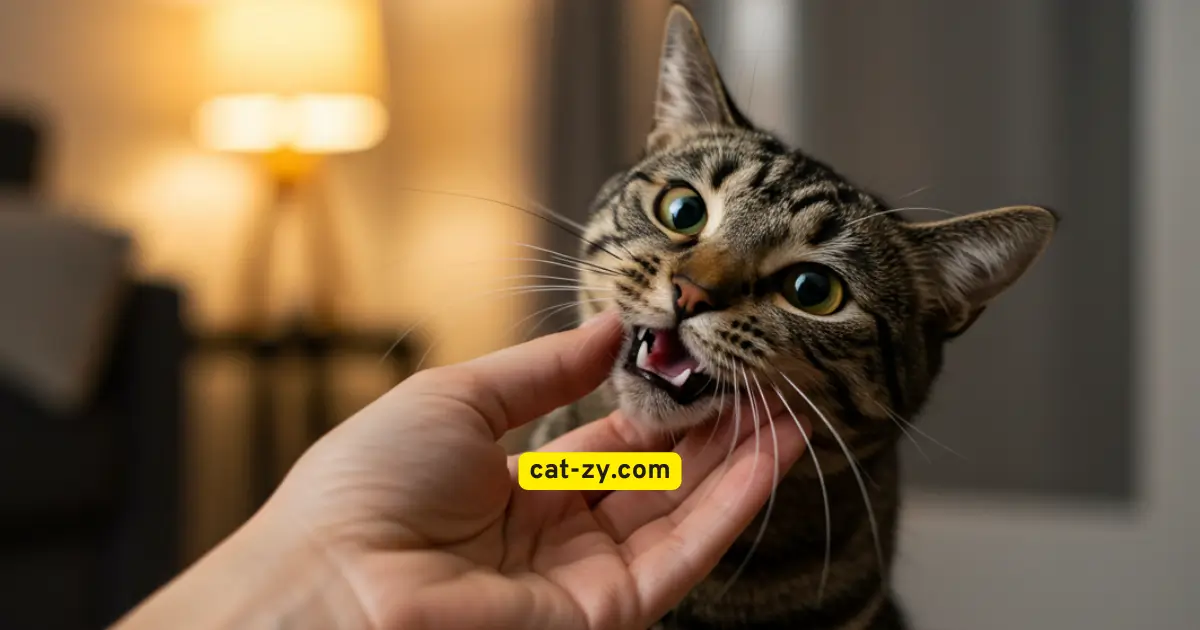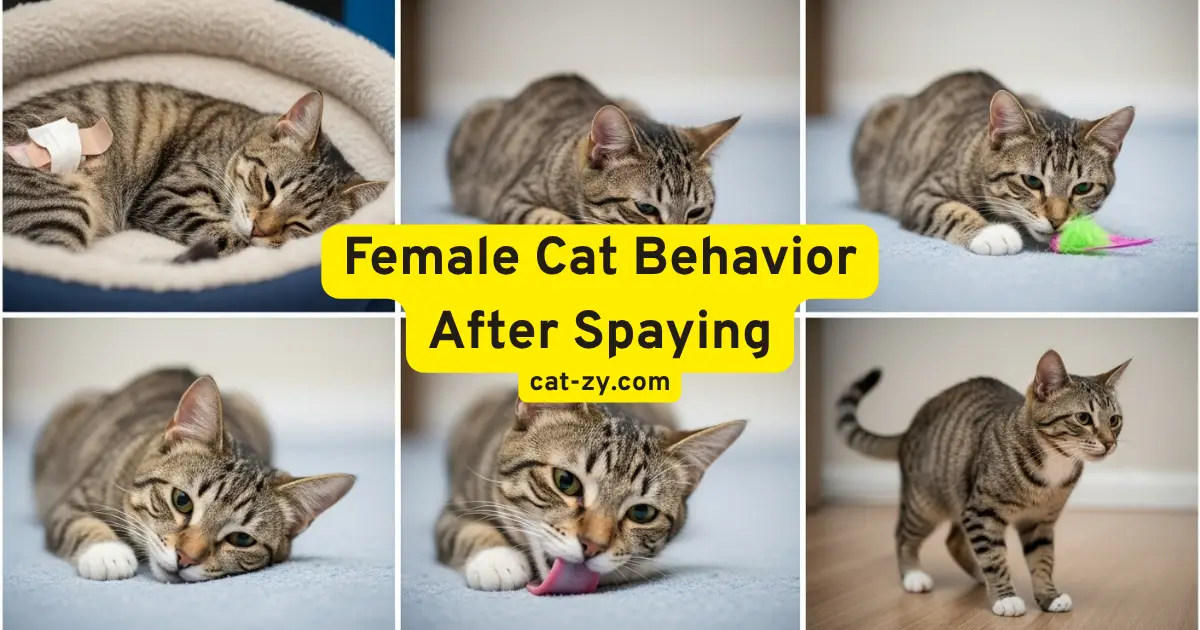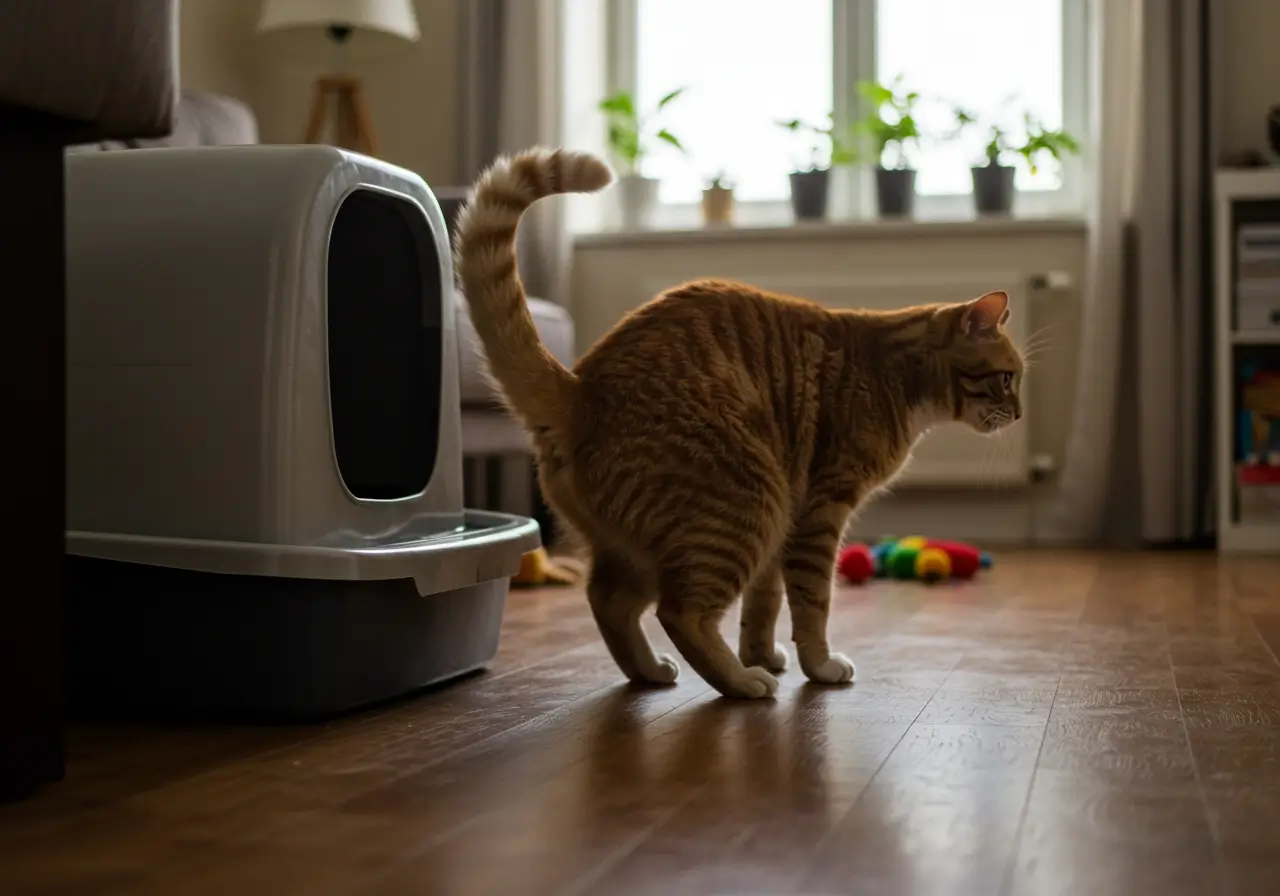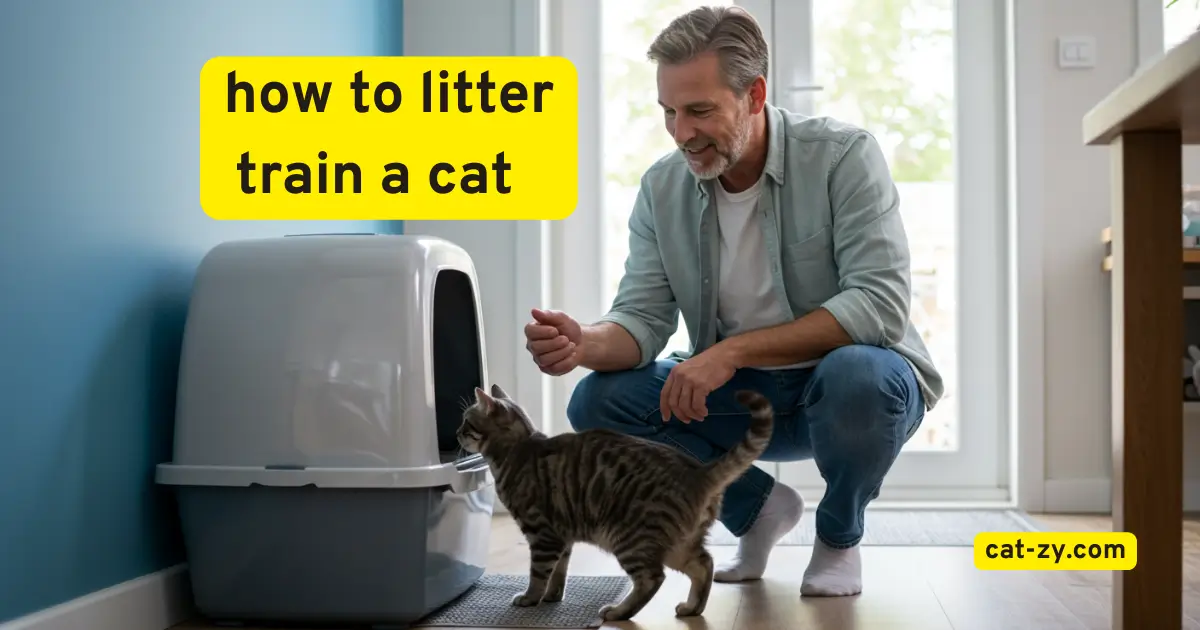Why Does My Cat Bite Me? 7 Shocking Truths Every Owner Should Know
Ever been surprised by your feline friend biting you? It hurts and puzzles many cat owners. You might find yourself asking, “Why does my cat bite me?“ You’re not alone; many face this issue. It’s crucial to know why it happens.
Getting to know feline behavior helps solve this problem. Cats bite for many reasons, like instinct, affection, or health issues. Learning the 7 shocking truths about your cat’s biting can improve your relationship with them.
This article will reveal the surprising reasons for your cat’s biting. It will help you understand the causes and find ways to stop it.
Table of Contents
Understanding Your Cat’s Biting Behavior
Cats bite for many reasons, from playful nips to aggressive bites. It’s important to understand why they do it.
The Difference Between Playful Nips and Aggressive Bites
It’s key to tell the difference between playful and aggressive biting. Playful nips are gentle and happen during play. On the other hand, aggressive bites are hard and often come with hissing or growling. Knowing this helps you react right to your cat’s actions.
Reading Your Cat’s Body Language Before They Bite
Your cat’s body language tells you a lot about their mood. A stiff posture, flat ears, or a tail twitch can mean they’re upset or scared. Spotting these signs early can stop a bite from happening.
The Evolutionary Reasons Behind Feline Biting
Feline biting comes from evolutionary instincts like hunting and defending. Cats might bite during play to mimic hunting or when they’re scared. Knowing these reasons helps you deal with their behavior better.
Truth #1: Your Cat Might Be Overstimulated
Overstimulation is a common reason behind your cat’s biting behavior. When cats are petted or handled too much, they can feel overwhelmed. This leads to aggressive behavior.
Petting-Induced Aggression Explained
Petting-induced aggression happens when your cat feels the touch is too much. They see it as a threat and defend themselves.
It’s not that they don’t like attention. They just can’t handle the stimulation.
Signs Your Cat Has Had Enough Attention
Knowing when your cat has had enough is key. Look for these signs:
- Tensing up or becoming rigid
- Flattening their ears
- Trying to move away
- Flicking their tail
Pay attention to these cues to avoid overstimulation.
How to Avoid Triggering Overstimulation
To avoid overstimulation, start with short petting sessions. Watch your cat’s body language. If they show discomfort, stop right away. Try different types of touch or give them breaks.
Being aware of your cat’s limits can help prevent bites.
Truth #2: Why Does My Cat Bite Me When I’m Showing Affection?
You’re cuddling with your cat, and they suddenly give you a love bite. But what does it mean? This behavior might seem strange, but it’s common. Cats often do things that confuse their human friends, like biting when they’re being affectionate.
The Love Bite Phenomenon
A love bite is a gentle nip or bite cats show when they’re being affectionate. It might seem aggressive, but it’s actually a sign of love. Cats bite for affection, even if it’s confusing to us.
How Cats Express Affection Differently Than Humans
Cats show love in ways that are different from us. While we might see a bite as aggressive, cats see it as playful or loving. Understanding these differences helps us understand our cat’s behavior.
Distinguishing Between Affection and Irritation
Not all bites are from love; some are from irritation or too much stimulation. It’s important to watch your cat’s body language. If they’re tense or trying to get away, their bite is not a love bite. Knowing these signs helps you understand why does my cat bite me when I’m showing affection and how to interact better.
By paying more attention to your cat’s behavior and reactions, you can have a better and more loving relationship. This way, you’ll have fewer unwanted bites and more moments of affection.
Truth #3: Your Cat May Be Trying To Communicate Pain
Your cat’s biting might be more than just a behavior issue. It could be a sign that they’re in pain or discomfort. It’s important to find out why they’re biting.
Medical Conditions That Can Trigger Biting
Many medical issues can make your cat bite. Dental problems, arthritis, or injuries are common causes. For example, a cat with a tooth abscess might bite when touched or eating.
A cat with arthritis might get aggressive when petted or handled. This is because they’re in pain.
Common medical conditions that can trigger biting include: – Dental issues like gum disease or tooth decay – Musculoskeletal problems such as arthritis or muscle strains – Neurological conditions like hyperesthesia or neuropathic pain
When To Consult Your Veterinarian
If you think your cat’s biting is due to pain or a medical issue, see your vet. Watch for signs like changes in appetite, more vocalization, or avoiding activities. Your veterinarian can identify the underlying cause and recommend appropriate treatment.
How to Safely Handle a Cat in Pain
When dealing with a cat in pain, be gentle and careful. Support their body and avoid sudden moves or touch. If your cat shows pain or aggression, talk to a vet or animal behaviorist for advice.
Truth #4: Territorial Instincts Could Be Triggering Bites
Your cat’s territorial nature might be why they bite. Cats protect their territory, which includes their home, family, and favorite spots.
Understanding Feline Territorial Behavior
Cats have a wild side that makes them defend their territory. This instinct is still in domestic cats. They get protective when they feel their space is being threatened.
Territorial marking is when cats use scent to mark their territory. But if they feel someone is invading, they might bite.
Environmental Factors That Increase Territorial Aggression
Changes in the home can make cats more territorial. This includes new pets, rearranged furniture, or changes in your work schedule. Stress and anxiety from these changes can make cats more aggressive.
Creating Harmony in Multi-Pet Households
In homes with multiple pets, it’s important to keep the peace. Give each pet their own food, water, litter box, and separate areas for retreat. This helps reduce fights.
Understanding your cat’s territorial behavior can help prevent bites. It makes your home a more peaceful place for everyone.
Truth #5: Your Cat’s Hunting Instincts Are Being Activated
Your cat’s natural hunting instincts might cause them to bite unexpectedly. Cats are born to hunt, and this instinct shapes their behavior.
Predatory Play Behavior Explained
Predatory play is a natural part of a cat’s life. They stalk, pounce, and bite like they’re hunting. This play is vital for their growth and is usually aimed at toys or small objects.
But, if they misdirect this instinct towards human hands or feet, it can lead to biting. This is not what they intend, but it happens.
How Your Movements Can Trigger Hunting Responses
Your movements can set off your cat’s hunting mode. Quick or erratic movements, like moving your feet under a blanket, can trigger a pounce. Wiggling your toes can also spark their predatory instincts.
Knowing these triggers helps you avoid encouraging unwanted biting. It’s all about paying attention to the way you move.
Redirecting Predatory Behavior to Appropriate Toys
To cut down on biting, redirect your cat’s hunting behavior to the right toys. Play with them using toys that mimic prey, like feather wands or laser pointers. This satisfies their hunting urge and strengthens your bond.
By doing this, you can greatly reduce the chances of them biting you when they shouldn’t.
Truth #6: Your Cat May Be Experiencing Fear Or Anxiety
If your cat bites you, it might be because of fear or anxiety. Cats can feel scared or anxious for many reasons. This can make them bite.
Common Anxiety Triggers For Cats
Cats can get anxious or scared by many things. Changes in their environment like moving or new pets or people can upset them. Loud noises, like thunderstorms, also scare them a lot.
Other things that might upset them include past traumatic experiences or medical conditions that hurt. Knowing what scares your cat is key to helping them.
Creating A Safe Environment For Your Nervous Cat
To make your cat feel safer, create a calm and predictable environment. Keep a regular daily routine. Give them quiet spaces to hide when they’re stressed. Try to avoid things that stress them out.
Behavior Modification Techniques That Actually Work
Good behavior change means gradual exposure to what scares them in a safe way. Use positive reinforcement like treats and praise. Desensitization and counterconditioning help your cat see the scary thing as good, making them less anxious.
By understanding and tackling your cat’s fear and anxiety, you can lessen their stress. This can make your relationship with your pet much better.
Conclusion: Breaking The Biting Cycle
Understanding why your cat bites is key to stopping it. You’ve learned that cats bite for many reasons. These include being overstimulated, trying to show pain, defending their territory, or feeling scared or anxious.
To stop the biting, watch your cat’s body language closely. This helps avoid overstimulation and catches health issues early. It also makes your home a safe space for your cat. Using toys to redirect their hunting instincts and avoiding triggers for territorial behavior can also help.
With these tips, you can have a better and safer relationship with your cat. Next time you wonder “why does my cat bite me,” you’ll know how to handle it. This way, you can break the biting cycle.
FAQ
Why does my cat bite me when I’m petting them?
Cats may bite when they’re overstimulated. This is called petting-induced aggression. There’s only so much they can take. When this limit is reached, they bite to say they’ve had enough.
What are the signs that my cat might be feeling overstimulated?
Look for signs like tail flicking, ear flattening, and trying to move away. If you see these, stop petting your cat right away. This helps avoid getting bitten.
Is it possible that my cat’s biting behavior is linked to a medical condition?
Yes, cats in pain or discomfort may bite. If your cat starts biting more, it could be a health issue. Consult your veterinarian to ensure there are no underlying issues.
Why does my cat bite during play?
Cats bite during play because it’s natural for them. It’s like they’re hunting. Giving them toys to play with can help them not bite you.
How can I stop my cat from biting during affectionate interactions?
Learn to read your cat’s body language. Recognize when they’re overstimulated or upset. Being gentle and not pushing them to interact can also help.
Is it possible that my cat bites me because of anxiety or fear?
Yes, anxious or fearful cats may bite. Finding out what scares them and making a safe space can help. This can reduce their aggression.
Can having multiple pets in the house cause my cat to become more aggressive and bite?
Having many pets can make your cat feel territorial. This can lead to aggression. Make sure each pet has its own space. Managing their interactions can help reduce tension and biting.
What are some effective ways to redirect my cat’s predatory behavior away from human skin?
Choose toys that simulate natural prey, such as feather teasers or laser lights. This can redirect their hunting instincts. It helps them not bite you.









3 Comments
Comments are closed.